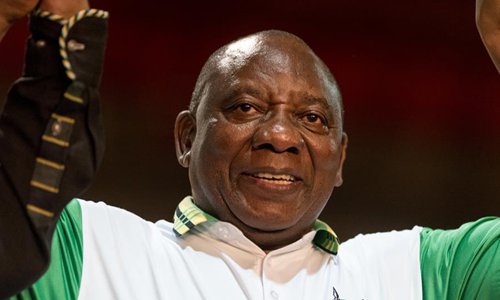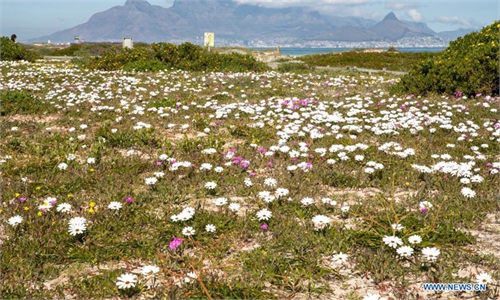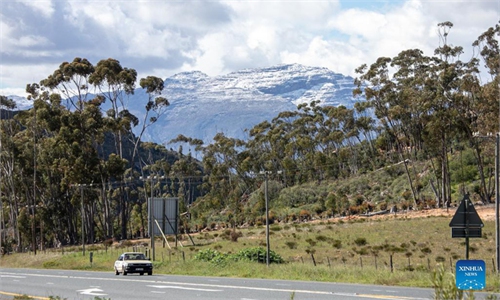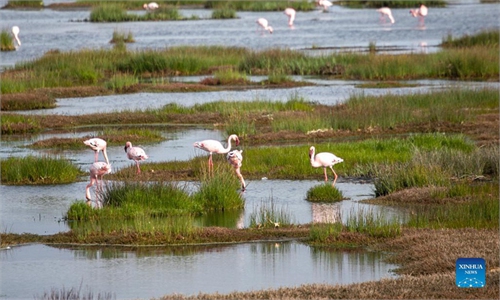
Cyril Ramaphosa celebrates after the announcement of results at South Africa's ruling party African National Congress' conference in Johannesburg, South Africa, on Dec. 18, 2017. South Africa's ruling party African National Congress (ANC) elected Cyril Ramaphosa on Monday to be the party's president for the next five years. (Xinhua/Dave Naicker)
South Africa's President Cyril Ramaphosa on Sunday announced plans to introduce COVID-19 "vaccine passports" amid widespread scepticism of the jab, ahead of an easing of movement restrictions this week.
After sluggish vaccine procurement and a delayed rollout, Africa's worst-hit country for COVID-19 is now struggling with low take-up, particularly among men.
In a televised address to the nation, Ramaphosa stressed that an immunized adult population was key to fully reopening the economy and avoiding a fourth infection wave.
In two weeks, we will "be providing further information on an approach to 'vaccine passports,' which can be used as evidence of vaccination for various purposes and events," he said without providing further details.
But he added that "a sustained decline in infections... over the last few weeks" would allow for an easing of confinement measures from Monday.
A night-time curfew will be shortened, starting at 11:00 pm instead of 10, and limits on indoor and outdoor gatherings will be increased.
Restrictions on the sale of alcohol will also be relaxed, although face masks remain mandatory in public.
South Africa has passed the peak of a stubborn third infection wave driven by the Delta coronavirus variant, said Ramaphosa.
The average number of daily new infections has been 29 percent lower over the past seven days than during the previous week, and 48 percent lower than the week before that, he added.
"Our most urgent task is to vaccinate our population," he said, noting that jab supplies "were no longer a constraint."
"If many people are not vaccinated, the chance of new variants emerging is far greater," he warned.
Just over 7 million people in South Africa have been fully vaccinated to date, with more than a quarter of all adults jabbed with at least one dose.
The country aims to inoculate 40 million South Africans, around two-thirds of the population, by March 2022.
Authorities recorded over 2.8 million cases since the pandemic, of which at least 84,877 have been fatal.
AFP



